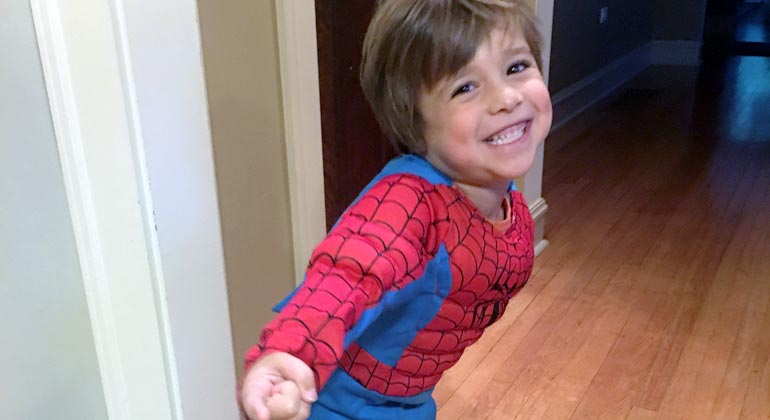The Salience of Superheroes

“Mommy, I bet The Hulk could pick up the whole world with one finger.”
Ah, the morning musings of my four year-old on our drive to school. As an early childhood professional with two young ones of my own, I’m well versed in the world of good guys, bad guys, princesses, superheroes, and the miracle of “saving the day.” But I still have to wonder, what is it about these caped crusaders that fascinate young children, generation after generation?
As children reach preschool age, they strive toward greater independence, yet they are often thwarted by the developmental limitations of their physical, cognitive and verbal skills, creating feelings of frustration and inadequacy. What’s more, they are constantly told what and what not to do, how to dress, what to eat, and more. It’s no wonder, then, that they are enthralled by superheroes – they embody every young child’s deepest fantasies! They can perform incredible feats of physical prowess, outsmart the most cunning schemers, and garner adoration from those in need of help. Superheroes are also always good and do the right thing – what could be more appealing to children who are trying hard to “make good choices,” but don’t always succeed? As superheroes, children get to feel brave, fearless, and – at long last – wholly in control of their worlds. Quite simply, it’s all about POWER – something young children have very little of in their daily lives.
We know that imaginary play is crucial to young children’s development, helping them to process their experiences and express a broad range of emotions. Yet many adults cringe when they see children playing superheroes, because it seems scripted, repetitive, and can quickly escalate into more aggressive behavior. That’s because most children don’t develop social play skills on their own; they need more adept, experienced play partners (read: adults) to scaffold and promote their emerging capacities in safe and productive ways, such as:
- Asking children what they know about superheroes, and why they do what they do. Wonder with them about what superpowers they would most like to have, and why.
- Establishing rules with the children before play begins (e.g., no physical contact, nobody can declare another person the “bad guy”).
- Practicing scripts for entering play (“Who can I be?” or “How can I help?”) and signaling when it gets to be too much (“I’m taking a break” or “That’s not safe”).
- Joining in the fun! Make observations about what is happening, offer ideas to elaborate or redirect the action, and work together to solve problems as they arise.
Last night, recalling my son’s declaration of The Hulk’s unmatchable strength, I asked him why kids seem to love superheroes so much. “That’s easy, Mommy,” he quickly replied, big brown eyes twinkling, “Because they can do ANYTHING!”
Fair enough, buddy, fair enough. Now where did I put that cape…?
by Jen Streicher, MS, LCSW, Early Childhood Social Services






